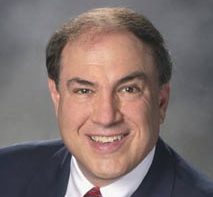Gelman: The Facts Don't Change Because You Try a Case
Monday, August 14, 2017 | 0
In my early days in the practice of law, when I was eager to try every case, my dad, a lawyer, used to remind me that, "The facts don't change because you try a case."

Jon Gelman
I was reminded of that adage while reading a recent New Jersey Appellate Court's opinion, where a respondent unsuccessfully appealed the trial court's decision.
In that case, the parties agreed to submit the case on reports, and the issue was the nature and extent of the injured worker's disability. The worker had an accident in 2011, and an order approving settlement was entered on the record in October 2012 for 22.5% of partial total disability.
While the petitioner testified in person about his increase in disability, the parties agreed to submit the new treating physician's and medical experts' report into evidence, thereby waiving their right to cross examine the witnesses.
The judge of compensation (JOC) reviewed all the evidence and rendered an oral opinion from the bench, awarding an additional 20% of partial total disability. The JOC outlined her opinion and reasons in detail after a thorough evaluation of the evidence.
The respondent appealed the award, alleging that the judge had not thoroughly reviewed the evidence. In an unreported per curiam decision, the Appellate Court affirmed the JOC. It is noteworthy to focus on the Appellate Court's rationale:
"Respondent's argument is based largely on parsing out and isolating different parts of various medical records and reports, rather than construing them as a whole. In addition, respondent is critical of petitioner's expert's reports because the reports' explanations concerning the extent of petitioner's increased disability and the causal relation of that increase to the original accident does not contain sufficient elaboration. Yet, by agreeing to present the medical evidence in reports rather than by experts' testimony, respondent now criticizes the JOC for doing precisely what the parties tasked her with doing; namely, reviewing the documentary evidence as a whole and determining the credibility of conflicting reports based on all the documentary evidence as well as petitioner's testimony. That is precisely what the JOC did, and her findings are amply supported by the documentary evidence and petitioner's testimony."
The facts don't change because you try a case.
Claimants' attorney Jon L. Gelman is the author of "New Jersey Workers’ Compensation Law" and co-author of the national treatise "Modern Workers’ Compensation Law." He is based in Wayne, New Jersey. This blog post is republished with permission.





Comments